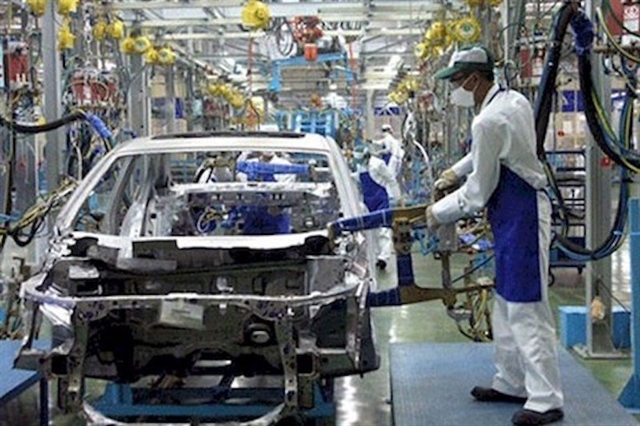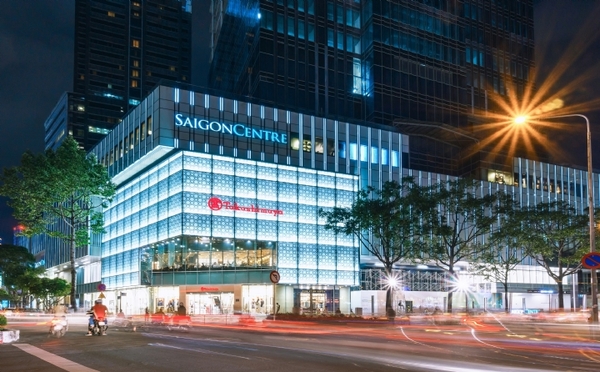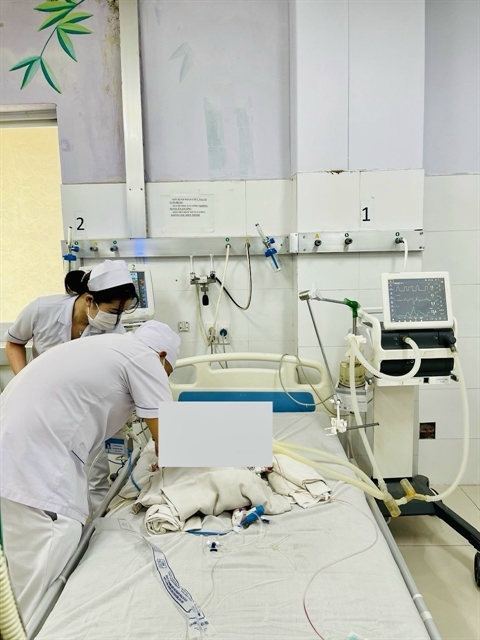 Society
Society

On a typical morning in HCM City, Nguyễn Hải Tùng, 27, appears on the twenty fifth floor of a building in District 7. He is preparing for a good day’s work, but not as a white collar worker.
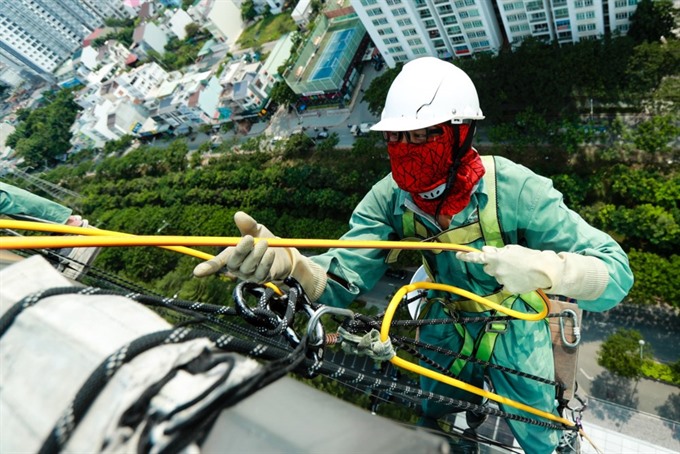 |
| A window cleaner at work in HCM City. — Photo news.zing.vn |
HCM CITY — On a typical morning in HCM City, Nguyễn Hải Tùng, 27, appears on the twenty fifth floor of a building in District 7. He is preparing for a good day’s work, but not as a white collar worker.
Dressed in a green kaki overalls, helmet and a gripoping a set of protective belts, Tùng is ready to climb out of the building and dangle hundreds metres above the ground. He is a window cleaner.
As HCM City develops into a metropolis full of high-rise buildings, its demand for sanitation and cleaning services increases. In the last seven years, Tùng had worked at hundreds of buildings across the South.
Sitting on a 30x70-centimetre wooden board secured by rope on its four corners, Tùng sprays detergent on the glass windows then wipes them off with a cloth.
The trick is to reach as far as possible at each stopping point to maximise the area he can clean at a time. He swings sideways, using one hand to stick a small vaccum plunger on the glass surface to anchor himself, then quickly washes the glass with the cloth with the other hand - and a sprayer held in his mouth.
“My eyes hurt when the detergents and sweats blow onto my skin, but I can’t wipe them off because both hands are busy, so I put up with it until the job is done,” Tùng said.
There are occasions when the harsh summer heat brings him down with a fever and he has to stay home for a week.
“Thinking about getting back up there frightens me, but it’s a paying job, nonetheless,” Tùng said.
After four hours on the morning shift, Tùng and his team-mates have a quick lunch for VNĐ20,000 (roughly US$1) at their usual eatery. They then sleep for half an hour on the terrace of buildings, using stools for pillows and uniforms to protect themselves from the sun.
The afternoon shift starts at 2pm. Blasted by the searing heat of the afternoon, Tùng climbs up the building again and cleans for another four hours. At 6pm he gets down, takes a quick bath, changes into his normal clothes, and drives home.
The life of these real-life “spider men” is nothing like the movie. Knowing how and where to knot the ropes is a matter of life and death, said Tạ Kim Thủy, director of Tùng’s company. He has 18 years’ experience in industrial and glass cleaning. “One mistake and they would lose their lives,” he said.
Window cleaners have to learn to identify the appropriate spots to make knots and to secure the stretched parts of the ropes. They cross-check with one another before each shift, and the team leader does a final check before letting them climb outside the buildings.
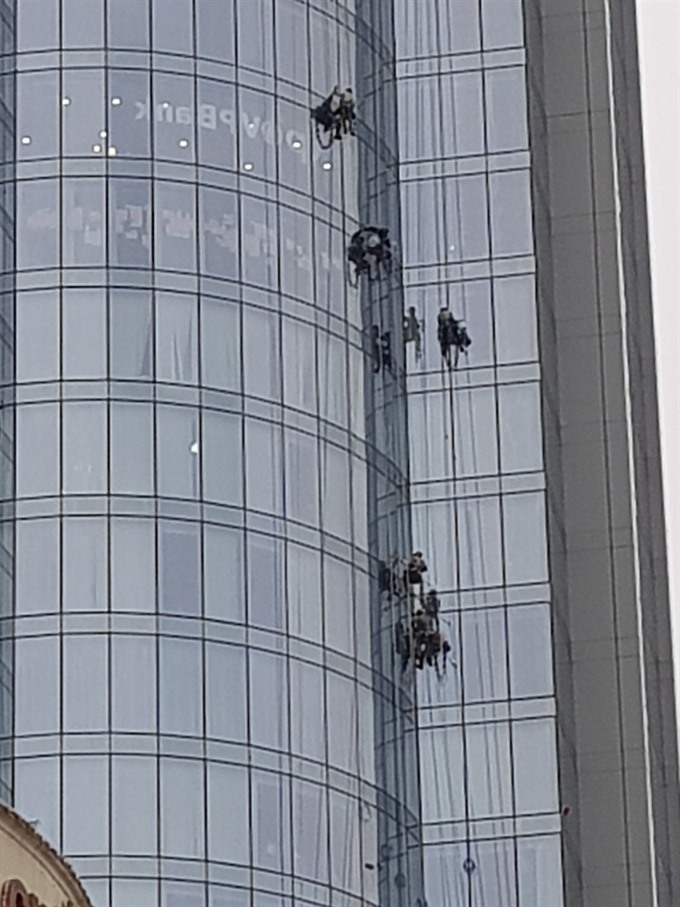 |
| Window cleaners at a high-rise building in Hà Nội. — VNS Photo Trịnh Thanh Thủy |
The occupation is so dangerous, it worries Tùng’s wife Liên. A year younger than him, she works at a seafood processing factory. She says it’s against her wishes that Tùng keeps the job.
“One of his friends broke his spine after a fall while cleaning windows in District 2,” she said. “I burst into tears when I heard the news and begged him to quit his job. But on second thought, we would not have been able to afford life in the city if he did,” she added.
Born into a poor farmer family in the southern province of Cà Mau, Tùng came to the city at 18 in the hope of getting a diploma at the Electric Power College. During that time, he met Liên, ended up window cleaning, and travelled to work in several southern provinces.
Like many other low-income labourers, the couple settled into a 25sq.m apartment containing their bedroom, kitchen, toilet and all their belongings. Hung on a wall is an altar, where Liên prays to the ancestors to protect Tùng at his job.
“It feels like we have no right to dream of something better,” Tùng said. “But I hope one day I will have enough money to open a grocery store or a breakfast stall so that Liên can work from home,” he said. — VNS








